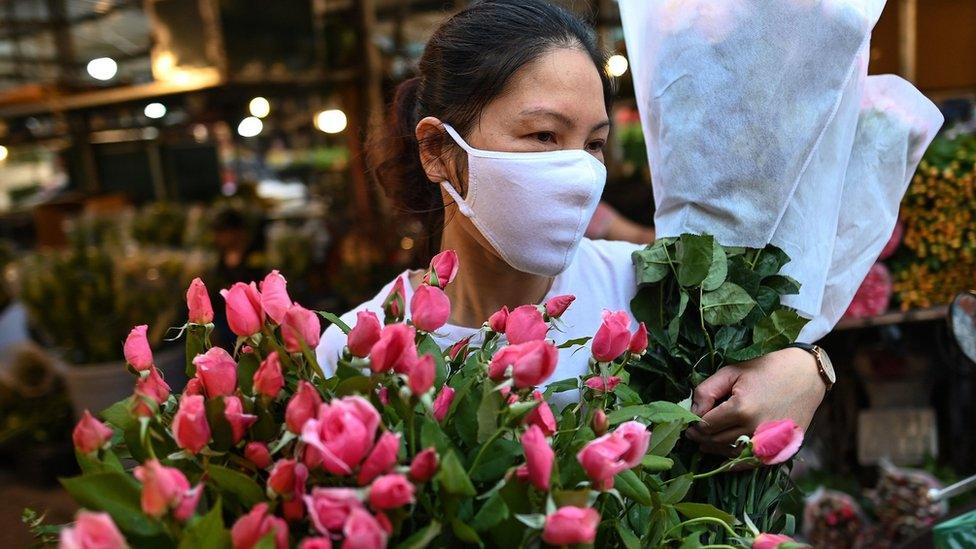Coronavirus: Alarm in Vietnam after first cases in months
- Published
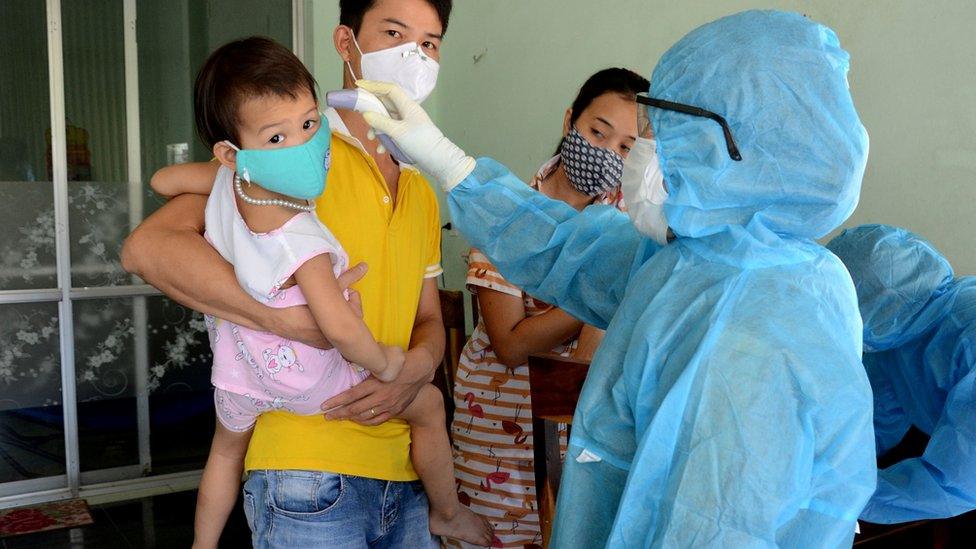
Officials have been carrying out health checks in Da Nang neighbourhoods
Vietnam has closed Da Nang to tourists after 15 new locally transmitted coronavirus cases were recorded there - the first in the country since April.
Tourists cannot enter the city for 14 days and up to 80,000, mostly domestic, visitors are to be flown home.
Vietnam has been lauded as a success story of the pandemic having acted early to close borders and enforce quarantine and contact tracing.
It has recorded just over 400 cases and no deaths.
But over the past four days, nearly 100 days after its last locally transmitted case, 14 new cases emerged in Da Nang, a central coastal city popular with domestic tourists. Another case was reported in nearby Quang Ngai Province.
Prime Minister Nguyen Xuan Phuc on Monday ordered Da Nang residents to re-implement social distancing and close all non-essential services.
He said the response had to be "decisive" but that he was not yet ordering a total lockdown of the city.
Analysis by scientists found that the strain of the virus in Da Nang had not previously been detected in the country, Vietnam's health minister said.
Nguyen Thanh Long said that claims the strain was more contagious than others , externalseen in the country were yet to be confirmed.
Links between cases unclear
The first new case - patient 416 - was a 57-year-old man who sought medical care on 20 July for flu symptoms.
He is now on a ventilator and, according to doctors quoted in local media, in a critical condition.
Scottish pilot Stephen Cameron spent 10 weeks in a coma in Vietnam
Contact tracing identified more than 100 people who had interacted with the man, but all returned negative tests.
However over the weekend, three more cases were confirmed, including one 17 year old from neighbouring Quang Ngai province who had travelled home on a coach with people who had been at the Da Nang C Hospital.
Da Nang C Hospital sealed its doors in response to the first diagnosis.
On Monday, a further 11 cases were confirmed. Seven were patients at a hospital in Da Nang and four are medical staff. The hospital was not identified.
The cases have raised fears that a full outbreak could be under way in Da Nang.
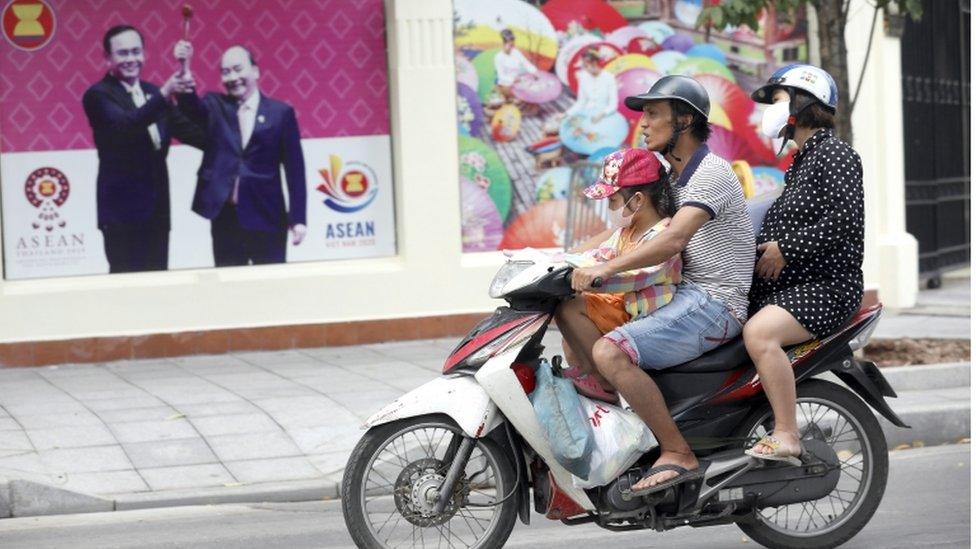
People in Hanoi are being asked to wear masks again after months without
With international travel largely impossible, Da Nang had been promoted as a holiday destination for Vietnamese people.
Officials say up to 80,000 domestic tourists are in the city, so extra flights are being laid on to take them home. People may be asked to quarantine on their return, according to media reports.
Hospitals across the country have also stepped up preventative measures, while the capital, Hanoi, has begun urging people to wear masks in public again.
Domestic football matches were also suspended on Sunday.
The new cases are a significant setback for Vietnam, which has been proud of its success in containing the virus. It has been praised by the World Health Organization (WHO).
Unlike many countries, Vietnam acted early on the pandemic, before it even had confirmed cases. It recognised that it did not have the resources to tackle widespread infection so instead, did everything it could to keep the virus out altogether.
It closed its borders to almost all travellers except returning citizens and requires anyone entering the country to quarantine in government facilities for 14 days and undergo testing.
Most of its cases have been detected in quarantine.
An extensive contact tracing and testing operation also meant it was able to quickly quash local outbreaks.
Its most famous foreign patient, a British man who spent 68 days on a ventilator, was able to travel home earlier this month.
Vietnam put out this song to teach people how to protect themselves from coronavirus
- Published27 July 2020
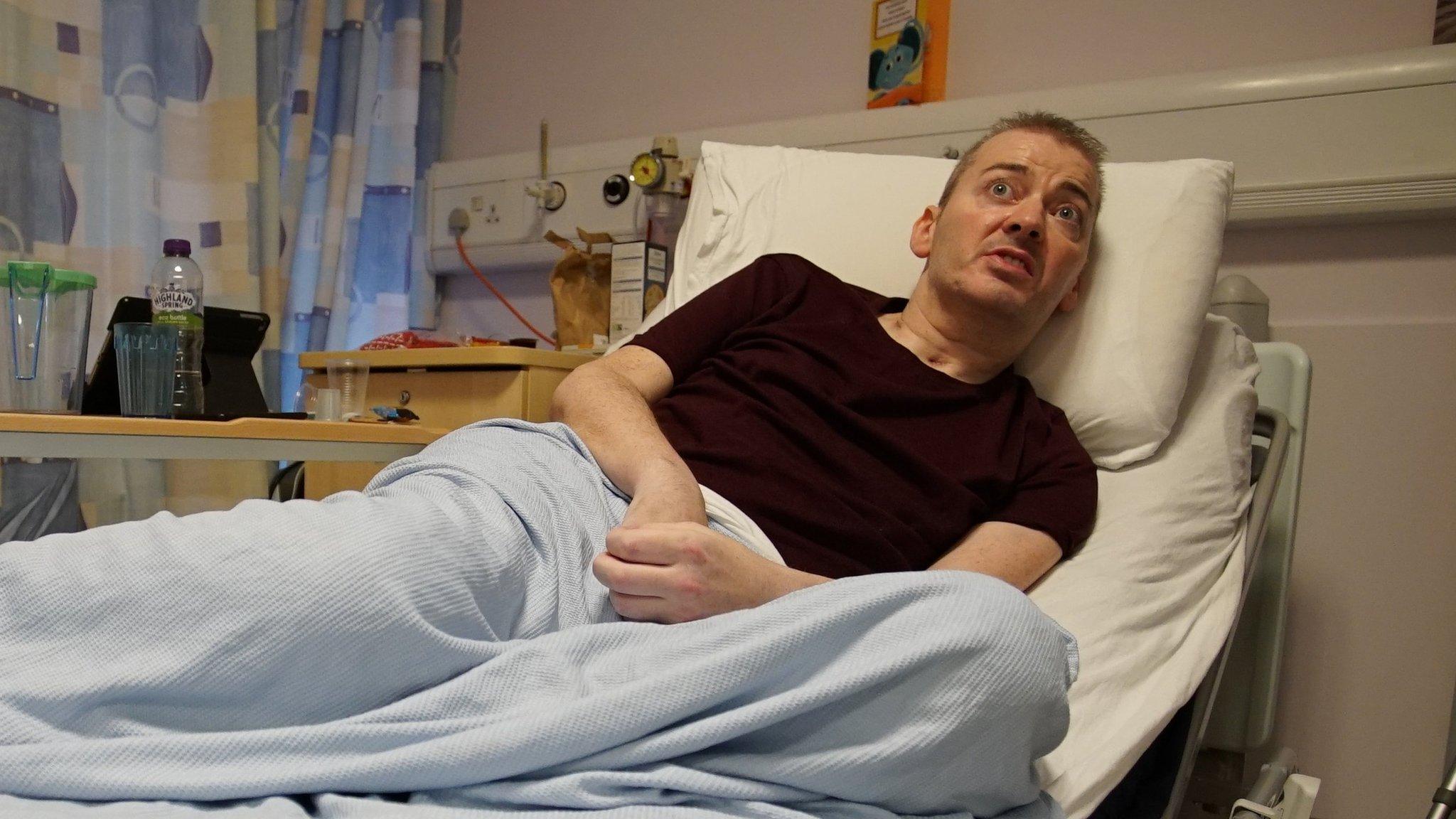
- Published27 June 2020

- Published5 July 2022

- Published6 March 2020
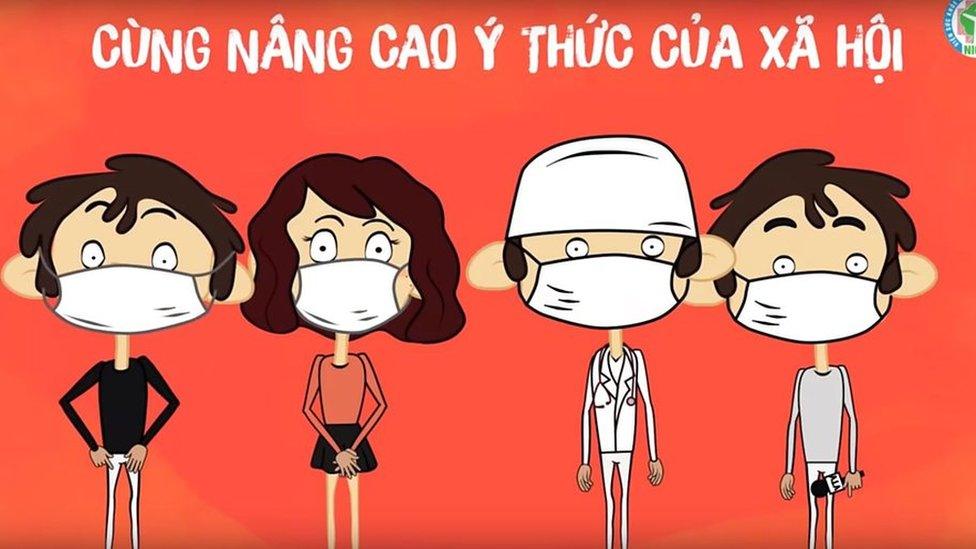
- Published15 May 2020
